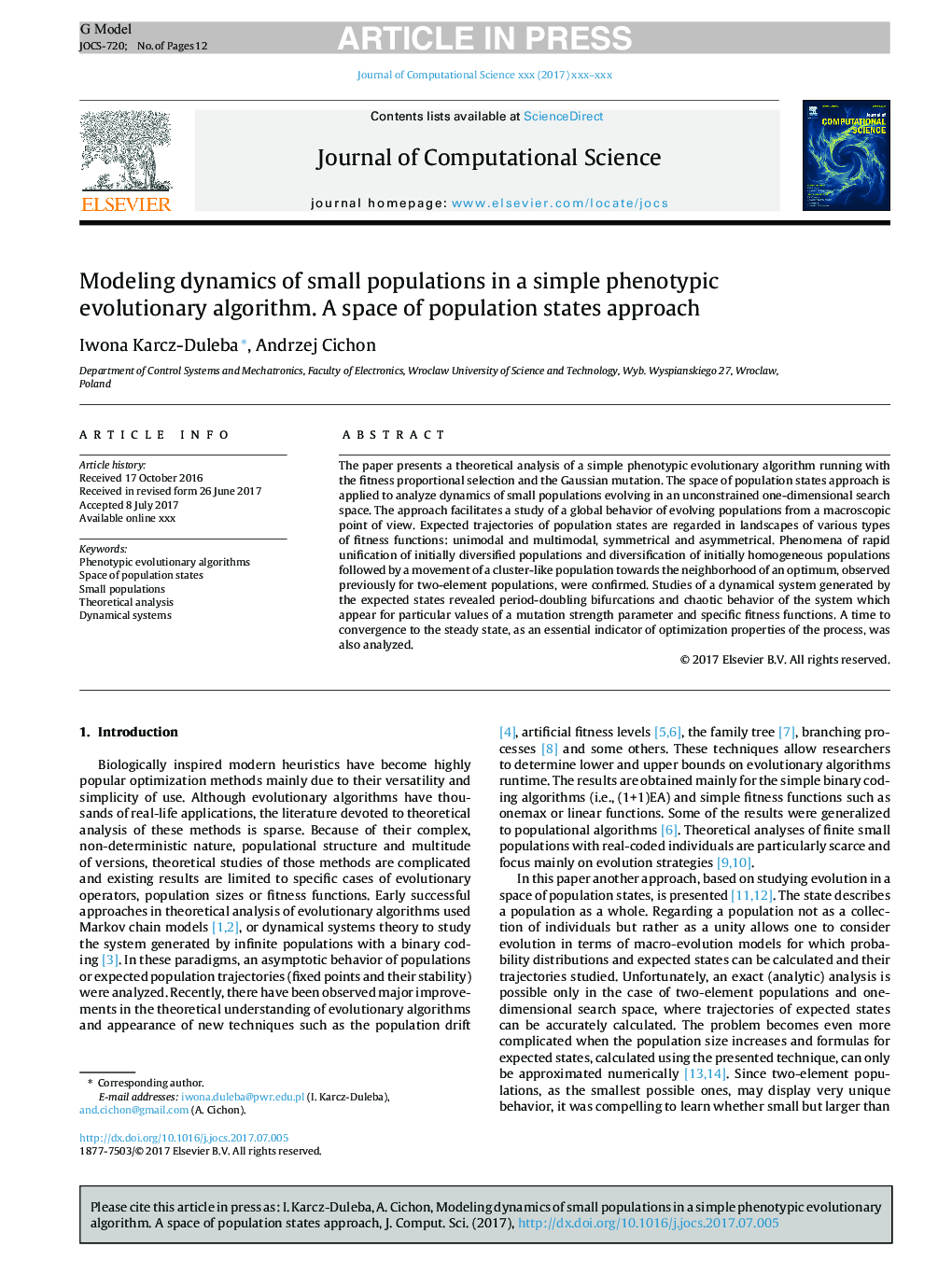| Article ID | Journal | Published Year | Pages | File Type |
|---|---|---|---|---|
| 6874491 | Journal of Computational Science | 2017 | 12 Pages |
Abstract
The paper presents a theoretical analysis of a simple phenotypic evolutionary algorithm running with the fitness proportional selection and the Gaussian mutation. The space of population states approach is applied to analyze dynamics of small populations evolving in an unconstrained one-dimensional search space. The approach facilitates a study of a global behavior of evolving populations from a macroscopic point of view. Expected trajectories of population states are regarded in landscapes of various types of fitness functions: unimodal and multimodal, symmetrical and asymmetrical. Phenomena of rapid unification of initially diversified populations and diversification of initially homogeneous populations followed by a movement of a cluster-like population towards the neighborhood of an optimum, observed previously for two-element populations, were confirmed. Studies of a dynamical system generated by the expected states revealed period-doubling bifurcations and chaotic behavior of the system which appear for particular values of a mutation strength parameter and specific fitness functions. A time to convergence to the steady state, as an essential indicator of optimization properties of the process, was also analyzed.
Related Topics
Physical Sciences and Engineering
Computer Science
Computational Theory and Mathematics
Authors
Iwona Karcz-Duleba, Andrzej Cichon,
